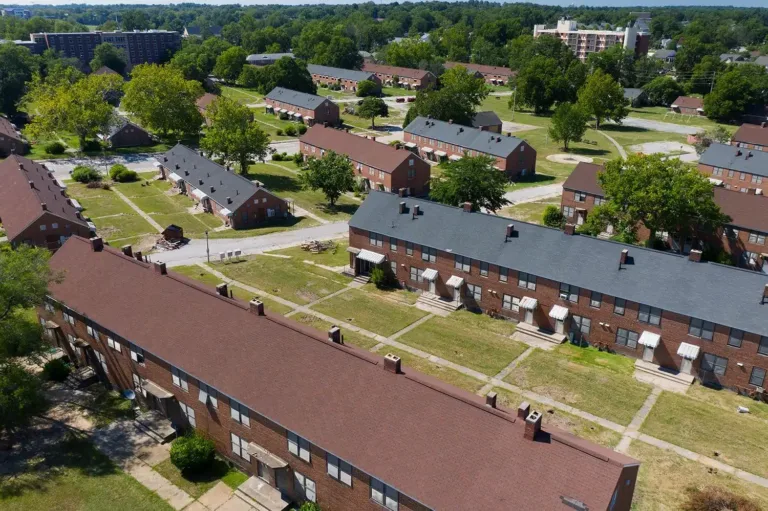If you were a former tenant of Allen Benedict Court, you may be entitled to monetary damages from the Columbia Housing Authority for their negligence and failure to provide safe and habitable housing. However, you will need to act quickly and individually to pursue your claim, as the court has denied the request to proceed as a class action lawsuit.
In this blog post, we will explain the background of the case, the current status of the litigation, and how you can contact Proffitt & Cox law firm for legal representation.
Background of the case
Allen Benedict Court was a public housing complex in Columbia, South Carolina, that housed about 400 low-income residents. On January 17, 2019, two tenants, Calvin Witherspoon Jr. and Derrick Roper, were found dead in their apartments from carbon monoxide poisoning. The cause was traced to a malfunctioning furnace that leaked the deadly gas into their units.
Following this tragic incident, the Columbia Fire Department inspected the entire complex and found multiple safety hazards, including gas leaks, electrical problems, mold, rodents, and structural defects. The Columbia Housing Authority ordered an immediate evacuation of all residents and relocated them to temporary shelters or hotels.
The displaced tenants soon learned that they would not be able to return to their homes, as the housing authority decided to demolish the complex and build new affordable housing units in its place. Many tenants faced difficulties in finding permanent housing, losing their belongings, and coping with emotional distress.
Lawsuit against the housing authority
In February 2019, Proffitt & Cox law firm filed a lawsuit on behalf of Tammy L. Basinger and Khaylis C. Scott, two former tenants of Allen Benedict Court. The lawsuit alleged that the housing authority was negligent in maintaining and repairing the complex, and that it violated the tenants’ rights to safe and habitable housing. The lawsuit sought monetary damages for the tenants’ losses and suffering.
The lawsuit also sought to represent all former tenants and their household members as a single class action lawsuit. A class action lawsuit is a legal procedure that allows one or more plaintiffs to sue on behalf of a large group of people who have similar claims against a common defendant. The advantage of a class action lawsuit is that it can reduce litigation costs, increase efficiency, and ensure consistent outcomes for all class members.
However, in order to proceed as a class action lawsuit, the plaintiffs had to obtain permission from the court by filing a Motion for Class Certification. The motion had to demonstrate that the proposed class met certain criteria, such as numerosity, commonality, typicality, adequacy, predominance, and superiority.
On June 11, 2021, Proffitt & Cox law firm filed the Motion for Class Certification on behalf of Basinger and Scott. The motion argued that there were hundreds of former tenants who had similar claims against the housing authority for negligence and breach of contract. The motion also argued that a class action lawsuit was the best way to ensure justice for all former tenants who suffered from the housing authority’s misconduct. However, on March 22, 2023, the court issued an order denying the Motion for Class Certification.
What does this mean for former tenants?
The court’s order means that each former tenant must pursue their own individual claim against the housing authority if they want to recover monetary damages. The order does not affect the merits of their claims or their right to sue. However, it does mean that they will need to file their own lawsuits or join existing lawsuits as individual plaintiffs. There are strict deadlines as to when individual lawsuits must be filed. While certain legal issues related to the deadlines might require argument before the court, Proffitt & Cox believes that former tenants should be entitled to file individual lawsuit raising the same claims asserted in the class action complaint if the lawsuits are filed by March, 14, 2025. However, tenants seeking to file individual lawsuits should do so soon as possible.
Proffitt & Cox law firm is prepared to represent former tenants of Allen Benedict Court on an individual basis. Eligible for representation are all tenants and their household members as stated in the written leases as of January 17, 2019. Adult tenants can represent minor children who were part of their household at that time. Former tenants who have passed away can have their personal representatives appointed by the probate court bring claims on their behalf.
If you are interested in pursuing your claim against the housing authority with Proffitt & Cox law firm, you can contact our firm via phone at (803) 834-7097.
You can also access the documents related to the case through this link.
Proffitt & Cox law firm will provide updates on the status of the case and any important developments in the future. They are committed to fighting for the rights and interests of former tenants of Allen Benedict Court and holding the housing authority accountable for their negligence and wrongdoing.





